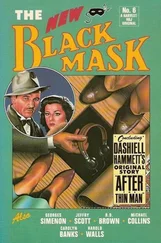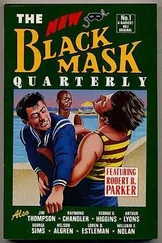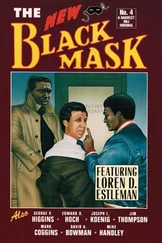On the one hand, folks were impressed at this evidence that people on the outside cared about me. On the other hand, the literary avalanche was proof that I was different, a freak: “She’s the one with the books.” Annette and a few other women were delighted by the influx of new reading material and borrowed from my library with abandon (and permission). Jane Austen, Virginia Woolf, and Alice in Wonderland definitely served to fill the time and keep me company inside my head, but I was really lonely in my actual physical life. I was cautiously trying to make friends, but like everything else in prison it was tricky; there were too many places where a newbie like me could easily misstep. Like the chow hall.
The chow hall was like a high school cafeteria, and who has fond memories of that? A vast linoleum room filled with tables with four attached swivel chairs, it was lined on two sides by windows that looked out toward the main back entrance to the Camp, where there were parking spaces, a handicapped ramp, and a forlorn and unused basketball hoop. Breakfast was a quiet affair, attended by only a fraction of the prisoners, mostly the older ones who appreciated the almost meditative peace of the morning ritual at six-thirty A.M. There was never a wait at breakfast-you grabbed a tray and plastic cutlery and approached the kitchen line from which food was dished out by other prisoners, some blank-faced, some chatty. It could be cold cereal or oatmeal or, on a really good day, boiled eggs. Usually there was a piece of fruit for every person, an apple or banana, or sometimes a rock-hard peach. Big vats of watery coffee sat next to cold drink dispensers filled with water and something like weak Kool-Aid.
I got in the habit of going to breakfast, where I would sit alone peacefully, not drinking the terrible coffee, observing the other prisoners come and go and watching the sun rise through the east-facing windows.
Lunch and dinner were altogether different: the line of women waiting for their food stretched the length of the wall below the windows and sometimes out the door, and the noise was tremendous. I found these meals nerve-racking and would cautiously advance with my tray, darting my eyes around for someone I knew near an empty chair, or even better, an empty table that I could grab. Sitting with someone you didn’t know was a dicey proposition. You could be met with the hairy eyeball and a resounding silence, or a pointed, “This seat is saved.” But you could also be met with a chatterer or a questioner, and when I ventured afield, I was often nabbed after the meal by Annette: “You wanna stay away from that one, Piper. She’ll be after you to buy her commissary in no time.”
Annette had a maternal instinct that was a force of nature and helped me navigate the official rules, like remembering the counts, and the PAC numbers, and what day I was allowed to bring my clothes to the laundry to be washed. But she was leery of most other prisoners who were not middle class and white. It turned out that early on Annette had been gamed by a young girl who had gotten the older woman to buy her lots of commissary items, playing on her pity. The girl was in fact notorious for her hustles of new prisoners, so Annette felt burned, and her caution was outsize. Annette included me in endless Rummy 500 games with her set of Italians, who grudgingly tolerated my poor play. The black women played far more boisterous games of Spades a few tables over; the Italians sniffed that they all cheated.
Annette introduced me to Nina, a fellow Italian, who was my age and lived a few rooms down, and she also took me under her wing. Nina had just returned from a month in the SHU (she had refused to shovel snow) and was waiting to get put back in the Dorms. Annette seemed scared of most other prisoners, but not Nina, who was Brooklyn street-smart, and just as wary of others as Annette: “They’re all wackos-they make me sick.” She had lived a tough life and was prison-savvy, funny as hell, and surprisingly tolerant of my naïveté, and I followed her around like a puppy. I paid close attention to her advice about how not to get rooked by another prisoner. I was definitely interested in figuring out who the nonwackos were.
I got along well with some of the women in my A &O group (plus I could remember their names): the tattooed Latina from my room, who was doing just six months for getting caught with six keys of coke in her car (made no sense to me); the salty redhead, who was still going on about how much better the prison in West Virginia was than Danbury, “although there’s more of us northerners here, if you know what I mean…”
Then there was little Janet from Brooklyn, who was slowly warming up to me, although she still seemed to think I was strange for being friendly. She was just twenty years old, a college girl who had been arrested on vacation as a drug mule. She had been locked in a Caribbean jail for an entire harrowing year before the feds came to get her. Now she was doing sixty months-more than half of her twenties would be spent behind bars.
One day I was joined at lunch by a different Janet, who was fiftyish, tall, fair, and striking. I had been watching her and wondering what her story was-she reminded me of my aunt. Janet was like me-a middle-class drug criminal. She was doing a two-year sentence on a marijuana charge. As we made conversation, she was friendly but never pushy, explicitly respectful of other people’s space. I learned that she was a world traveler, a classic eco-peacenik intellectual, a fitness fanatic and yoga expert, and a devout Buddhist possessed of a wry sense of humor, all incredibly welcome attributes to encounter in a fellow prisoner.
Institutional food required a Zen outlook. The mess hall lunch was sometimes hot, sometimes not, the most popular meals being McDonald’s-style hamburger patties or the ultimate, and rare, deep-fried chicken sandwich. People went crazy for chicken in any form. Far more often lunch was bologna and rubbery orange cheese on white bread and endless amounts of cheap and greasy starch in the form of rice, potatoes, and horrible frozen pizzas. Dessert was wildly variable, sometimes really good home-baked cookies or cake, sometimes Jell-O, and sometimes bowls of pudding, which I was warned off of: “It comes out of cans marked DESERT STORM, and if there’s mold on the top, they just scrape it off and serve the rest.” For the few vegetarians, there was texturized vegetable protein. TVP was a repulsive reconstituted soy powder that someone back in the kitchen would fruitlessly try to make edible. It usually looked like worms. Sometimes if they had added a list of onions, you could choke it down. Poor Yoga Janet was a vegetarian and resigned herself to a subsistence diet most of the time.
Both lunch and dinner featured a salad bar that offered iceberg lettuce, sliced cucumbers, and raw cauliflower. Only certain women, like Yoga Janet, were regulars at the salad bar. I said hello to them shyly, my sisters in roughage. Occasionally other vegetables would appear on the bar-broccoli florets, canned bean sprouts, celery, carrots, and very rarely, raw spinach. These would quickly be raided and spirited out of the dining hall for prisoners’ cooking projects, which went on in force in the two microwaves near the Dorms. The only food available was what we got in the dining hall and what prisoners were able to buy from the commissary.
A constant presence in the dining hall was Italian Nina’s former bunkie Pop, the imposing fiftyish wife of a Russian gangster who ruled the kitchen with an iron fist. One evening I was sitting with Nina as the dinner hour was drawing to a close, when Pop sat down with us, clad in her customized burgundy kitchen smock adorned with POP over the heart in white yarn, à la Laverne and Shirley. I, knowing less than nothing, began maligning the food. It didn’t occur to me at that point that anyone would put any pride into their prison job, but Pop did. When I made a joke about a hunger strike, that was it.
Читать дальше












